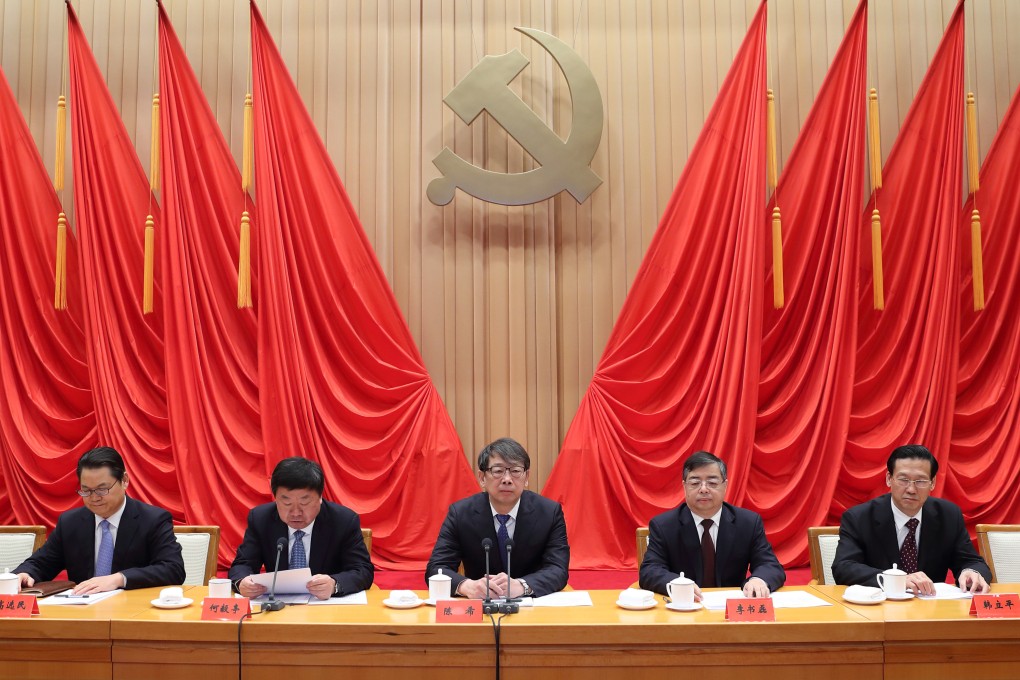Chen Xi: the presidential aide who built China’s new technocracy
- As head of the Communist Party’s Organisation Department, Chen oversaw the emergence of a group of Tsinghua and tech cadres at the very top of Chinese politics
- It was a job he took on on behalf of his former university roommate Xi Jinping

It is a post that wields enormous power over party personnel changes and one that has a profound influence on how China manages its apparatchiks.
The 69-year-old stepped down from the Politburo in October, but remained head of the department.
“He remained the head of the Central Organisation Department only as an ordinary party member, not even a Central Committee member … to make proper [personnel] arrangement until the ‘two sessions’ [in March],” said Shan Wei, a senior research fellow on Chinese politics at the National University of Singapore. “It really shows how Xi is reluctant to let Chen go.”
Chen retains an important role once held by Xi when he was a vice-president – head of the Central Party School, the party’s top academy, but he will no longer wield the influence he once had.